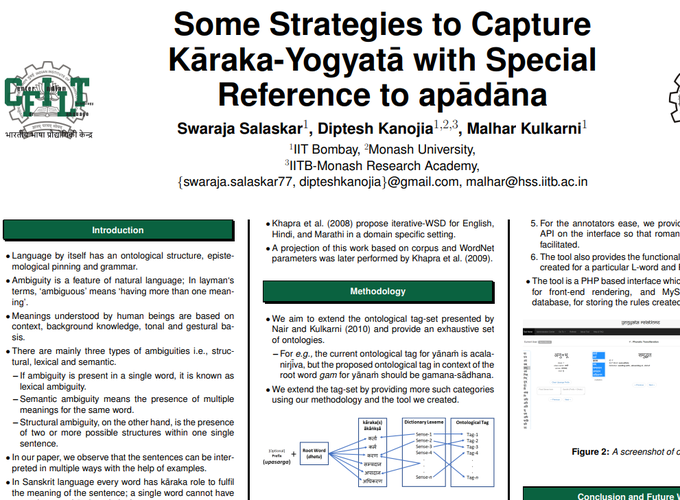Abstract
In today’s digital world language technology has gained importance. Several software, have been developed and are available in the field of computational linguistics. Such tools play a crucial role in making classical language texts easily accessible. Some Indian philosophical schools have contributed towards various techniques of verbal cognition to analyze sentence correctly. These theories can be used to build computational tools for word sense disambiguation (WSD). In the absence of WSD, one cannot have proper verbal cognition. These theories considered the concept of ‘Yogyatā’ (congruity or compatibility) as the indispensable cause of verbal cognition. In this work, we come up with some insights on the basis of these theories to create a tool that will capture Yogyatā of words. We describe the problem of ambiguity in a text and present a method to resolve it computationally with the help of Yogyatā. Here, only two major schools i.e. Nyāya and Vyākaraṇa are considered. Our paper attempts to show the implication of the creation of our tool in this area. Also, our tool involves the creation of an ‘ontological tag-set’ as well as strategies to mark up the lexicon. The introductory description of ablation is also covered in this paper. Such strategies and some case studies shall form the core of our paper.
